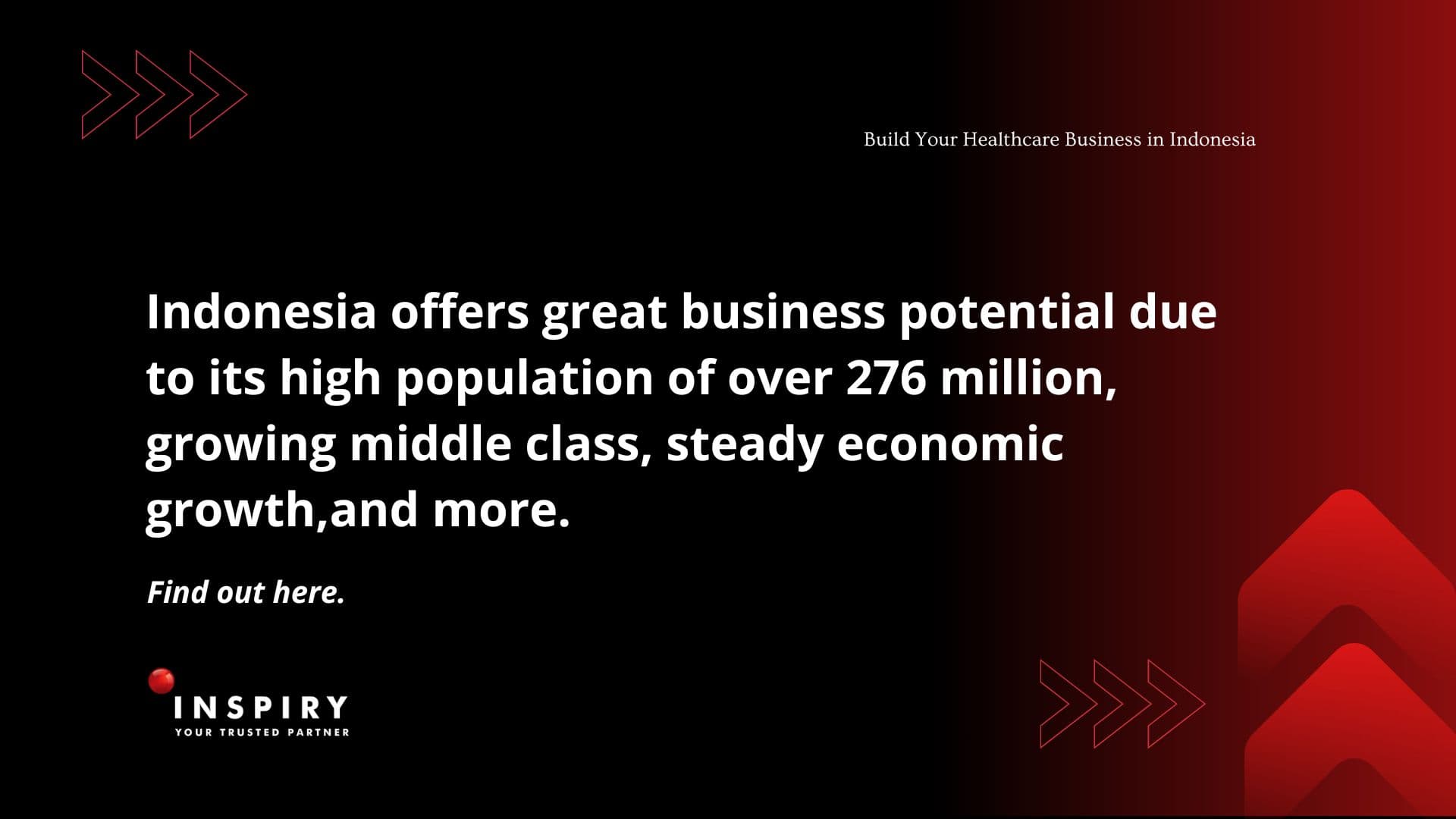
Blog Detail
Build Your Healthcare Business in Indonesia

Indonesia offers great business potential due to its high population of over 276 million, growing middle class, steady economic growth, emerging digital economy, rich natural resources, infrastructure development, strategic location, and government initiatives. Also, its GDP continues to grow, creating opportunities in various sectors, including e-commerce, fintech, and digital payments. Indonesia has a strategic location between the Indian and Pacific Oceans, which makes it a hub for trade and investment, and its proximity to Southeast Asia enhances its potential as an economic hub. These considerations may enhance overseas investors to start their business in Indonesia.
Healthcare development has been prioritized by the governments, through six fundamental transformations. Due to this, the healthcare segment draws massive interest, though there are still barriers regarding strict regulation. Below is the step to establish your company in Indonesia and the requirements you should fulfill!
Research: Market research is crucial for businesses to comprehend customer needs, identify market opportunities, assess market feasibility, analyze competition, develop a marketing strategy, mitigate risks, support business growth, and improve decision-making. By understanding customer preferences, behavior, and needs, businesses can adapt their products, services, and marketing strategies to meet customer needs, thus leading to increased satisfaction and loyalty. Market research also helps to assess market size, demand, competition, and profitability, enabling informed decisions and reducing risks. Overall, market research will ultimately contribute to business success and growth.
Choice of the legal form of the company: Individual and Limited Liability Companies are some of the most common legal forms in Indonesia. While creating a company notary deed, you may discuss the best alternatives with your legal consultant about which type of company is appropriate for the capital and your company goals. In the notarial need, there are Standard Classification of Business Field in Indonesia to describe the sector and activities of the company. This KBLI will determine the risk level which is classified into four levels: low risk, medium/low risk, medium/high risk, and high risk.
Business Identification Number (NIB): If the company notarial deed has been validated with the Ministry, then the company should obtain Business Identification Number. The Business Identification Number (NIB) is a 13-digit identification code for Indonesian companies, introduced by the government to improve the investment climate and expedite business licensing. It includes company information, sector, location, and other relevant data. NIB is required for reporting activities to government agencies, licensing, and business transactions. Companies can obtain a NIB through the Online Single Submission (OSS) system, which provides integrated services for obtaining business licenses and permits. Registration involves verifying company data, paying a registration fee, and other administrative processes
Other Requirements: The healthcare business majorly is in the medium/high-risk level or above, such as
GMP, or Good Manufacturing Practice (CPAKB or CPOB), is a set of quality management principles and guidelines used in various industries, particularly pharmaceutical and medical devices.GMP compliance is often required by regulatory agencies to reduce the risk of penalties, product recalls, or legal issues. It ensures consistent manufacturing, control, and testing, maintaining product quality, purity, and safety. Also, It promotes product safety, consistency, and uniformity, enhancing reputation and trust among stakeholders. It also improves efficiency and cost-effectiveness by optimizing processes and reducing waste.
AMDAL is an Indonesian process for Environmental Impact Assessment (AMDAL), assessing the potential environmental impacts of projects before implementation. It aims to minimize adverse impacts, protect natural resources, and promote sustainable land and resource use. AMDAL promotes stakeholder participation, transparency, and accountability in decision-making related to development projects.
Good Distribution Practices (GDP) are fundamental standards and guidance for the safe and reliable distribution of pharmaceutical products across the supply chain. They are concerned with correct storage and handling, documentation and record-keeping, supply chain security, transportation and distribution, a quality management system, and the training and competency of distribution workers. GDP ensures patient safety, and product quality, and reduces the danger of inappropriate handling or storage. Pharmaceutical and medical device products are distributed securely, efficiently, and in accordance with regulatory criteria when GDP is followed, ensuring patient safety and minimizing hazards related to incorrect handling or storage.
For further information, please contact us here.
Salam Inspirasi,
apt.Syifa Amirta Sani, S.Farm
